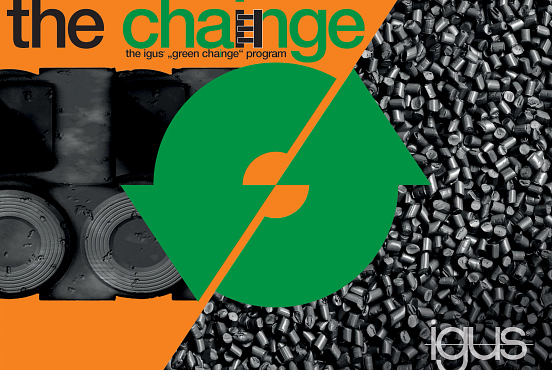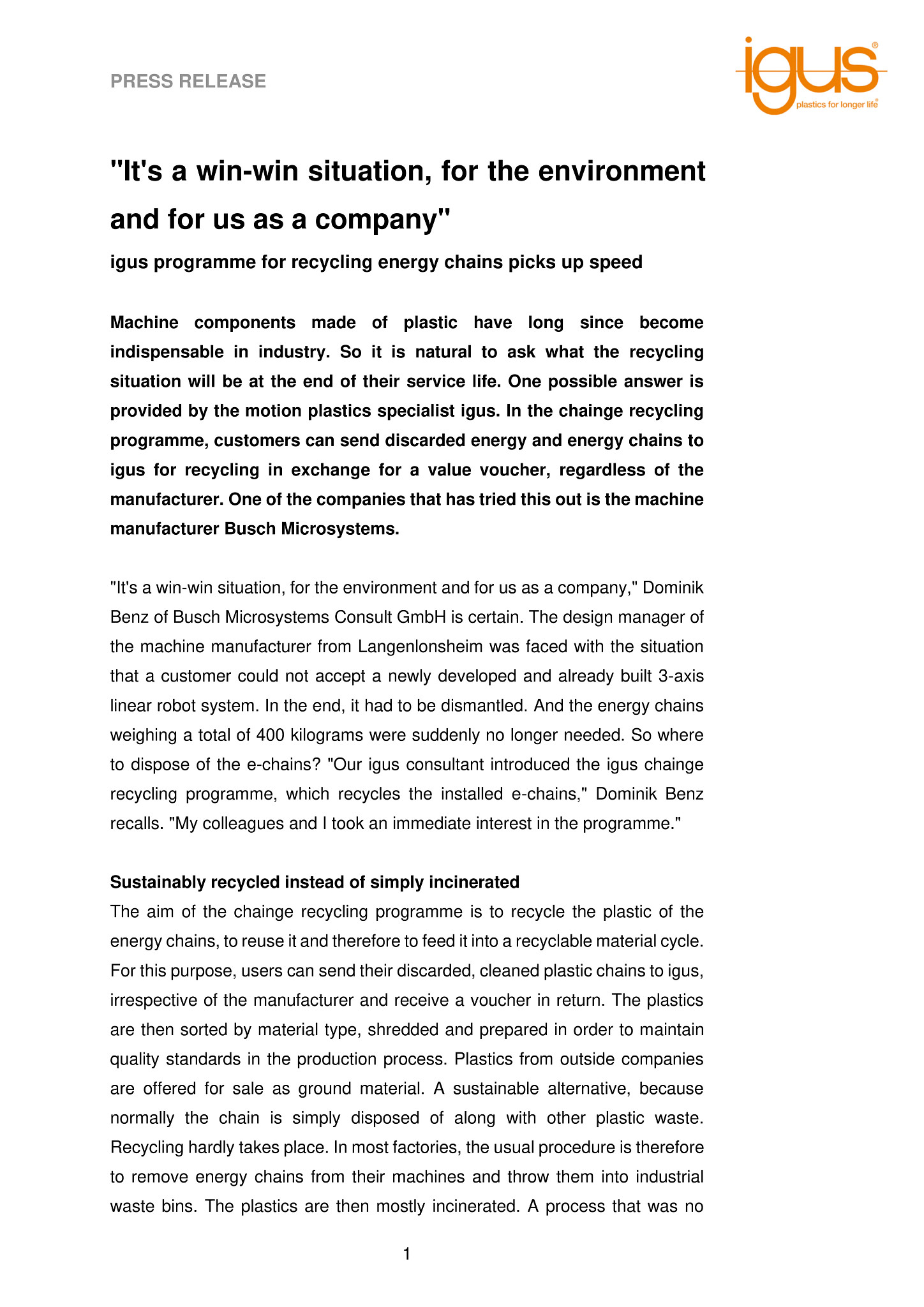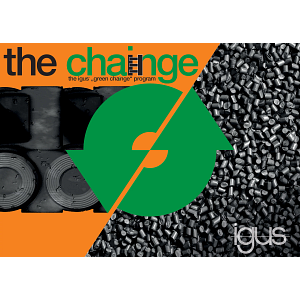“It’s a win-win situation, for the environment and for us as a company”
Published on: 22nd October 2021
igus programme for recycling energy chains picks up speed

Machine components made of plastic have long since become indispensable in industry. So it is natural to ask what the recycling situation will be at the end of their service life. One possible answer is provided by the motion plastics specialist igus. In the chainge recycling programme, customers can send discarded energy and energy chains to igus for recycling in exchange for a value voucher, regardless of the manufacturer. One of the companies that has tried this out is the machine manufacturer Busch Microsystems.
“It’s a win-win situation, for the environment and for us as a company,” Dominik Benz of Busch Microsystems Consult GmbH is certain. The design manager of the machine manufacturer from Langenlonsheim was faced with the situation that a customer could not accept a newly developed and already built 3-axis linear robot system. In the end, it had to be dismantled. And the energy chains weighing a total of 400 kilograms were suddenly no longer needed. So where to dispose of the e-chains? “Our igus consultant introduced the igus chainge recycling programme, which recycles the installed e-chains,” Dominik Benz recalls. “My colleagues and I took an immediate interest in the programme.”
Sustainably recycled instead of simply incinerated
The aim of the chainge recycling programme is to recycle the plastic of the energy chains, to reuse it and therefore to feed it into a recyclable material cycle. For this purpose, users can send their discarded, cleaned plastic chains to igus, irrespective of the manufacturer and receive a voucher in return. The plastics are then sorted by material type, shredded and prepared in order to maintain quality standards in the production process. Plastics from outside companies are offered for sale as ground material. A sustainable alternative, because normally the chain is simply disposed of along with other plastic waste. Recycling hardly takes place. In most factories, the usual procedure is therefore to remove energy chains from their machines and throw them into industrial waste bins. The plastics are then mostly incinerated. A process that was no longer an option for Dominik Benz. “We could not and would not close our minds to the subject of recycling, quite the contrary.” Helmut Rath, head of control engineering at IBG Automation, agrees: “Everything we do for our environment is ultimately capital well spent. The return process was simple and straightforward.” Busch Microsystems and IBG Automation are among a growing number of companies for which plastics recycling is playing an increasingly important role. With the recent return of 3.4 tons in Singapore, the heaviest single return to date, almost 17 tons have already been collected worldwide in the igus chainge recycling programme and reprocessed locally. “This is a very first step,” Angelina Donner, Lean Engineer at igus clarifies. “We work every day to convince more and more customers to send their energy chains for the recycling process.” The Rhineland-Palatinate designers see it the same way, because they want to continue participating in the chainge recycling programme in the future, as Dominik Benz emphasises. “We try a lot of new things in day-to-day development. There are always some leftovers from e-chains. From now on, we collect these centrally and send them back to igus once a year for recycling.”



